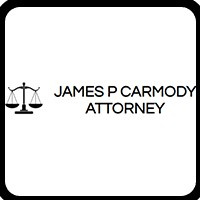Cedar Bluff Credit & Debt Lawyer, Virginia
Not enough matches for Cedar Bluff Credit & Debt lawyer.
Below are all Cedar Bluff Bankruptcy & Debt lawyers.
James P Carmody
✓ VERIFIEDBankruptcy, Family Law, Credit & Debt
Since 1976, Mr. Carmody has provided outstanding legal services for bankruptcy, divorce, custody issues, and adoption proceedings to clients in the gr... (more)
Eric Wagaman Reecher
Education, Labor Law, Insurance, Credit & Debt
Status: In Good Standing Licensed: 27 Years
Mark Louis Esposito
Construction, Litigation, Natural Resources, Credit & Debt
Status: In Good Standing
Mark Louis Esposito
Construction, Litigation, Natural Resources, Credit & Debt
Status: In Good Standing Licensed: 22 Years
Bernard Starr Via
Bankruptcy, Personal Injury, Accident & Injury
Status: In Good Standing Licensed: 31 Years
Bruce Harold Russell
Criminal, Child Custody, Civil & Human Rights, Insurance, Bankruptcy
Status: In Good Standing


